Home » All Issues » Issue 3 » Hop to it
Hop to it
Mac Hops Director, Brent McGlashen, is a fifth-generation farmer on his family farm in Nelson. Nestled at the top of New Zealand’s South Island, the original 30-hectare farm was purchased in the early 1900s. Hops were an important crop for the early settlers and thrived in the region due to its climate, soils and latitude. Hops are sensitive to latitude for flower setting and are typically grown in the 40–45 degree zone each side of the equator. They were harvested by hand and dried in oast houses to preserve their bitter flavour properties, prized by the domestic breweries.
Today Mac Hops is one of the last original New Zealand family hop-growing businesses and has recently expanded to become one of the largest hop producers in the country, tapping into the world’s insatiable demand for craft beer.
Together with his brother-in-law Owen Johnstone, Mac Hops harvest over 130 hectares of hops on two separate farms. Brent spent his childhood engrained within the operations of the family business, helping his dad after school and on the weekends for a modest amount of pocket money. It was these years that taught Brent key practical skills. He and his three siblings jumped in wherever they could to ensure everything went smoothly, especially during harvest season when it is all hands on deck.
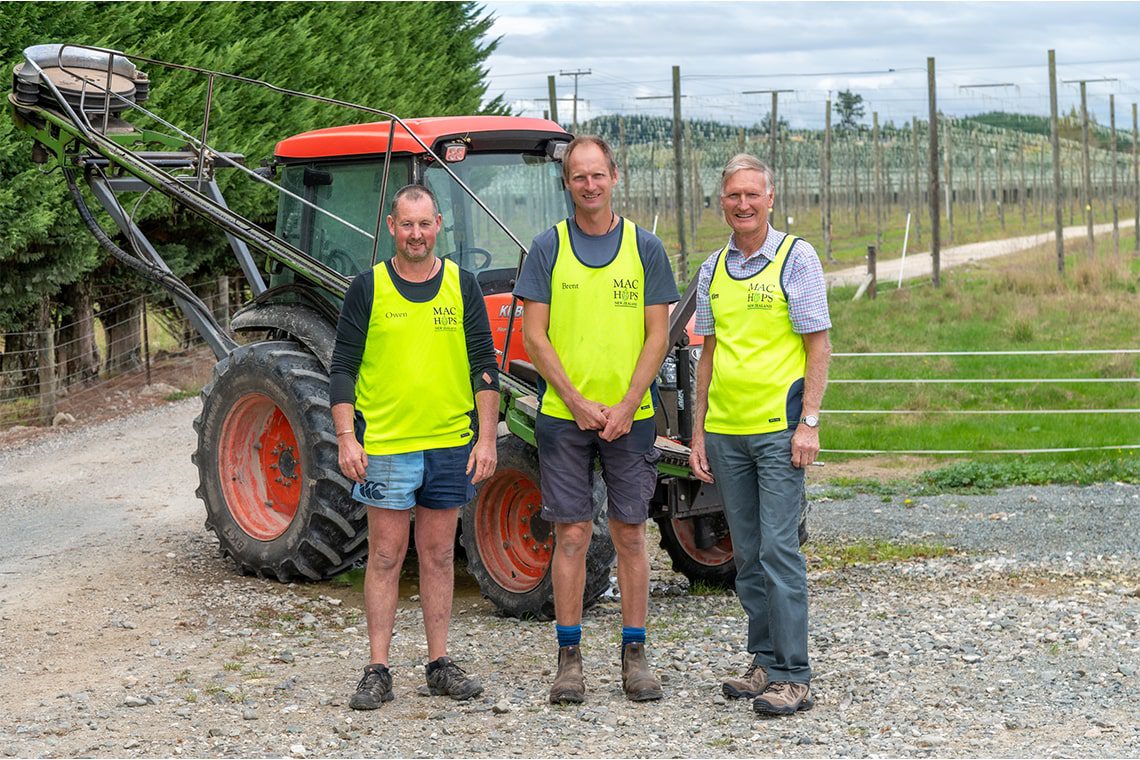
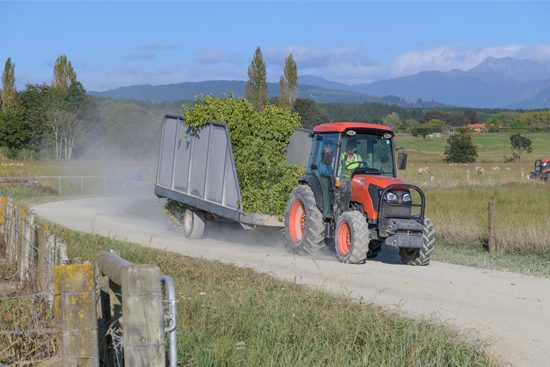
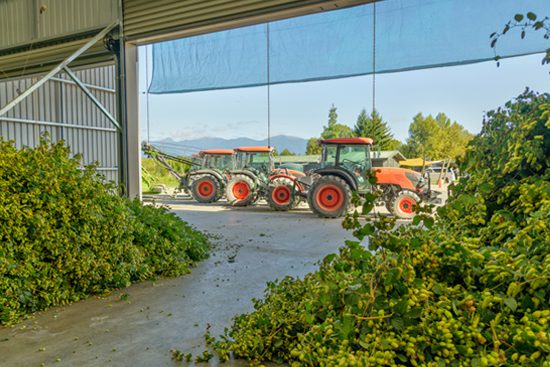
March is the most important time of the year at Mac Hops, when it’s time to harvest the hops grown over the season. Brent has spent many long nights with his NZ family and for a few years also joined his hop-grower friends in the US, fitting in two harvests in a calendar year. “The most exacting task during harvesting is the hop drying process. The hops are placed in a kiln to dry out and must be carefully checked every 20 minutes towards the end of the kilning process to ensure they are evenly dried. Too little or too much time in the kiln can lead to the precious oils within the hops being tainted, and the hops are ruined,” says Brent. “For most outsiders, it may seem like a stressful and complicated process, but I wouldn’t have it any other way. There’s a craft to it and I enjoy taking good care to produce the perfect hop.”
Growing up, Brent never faced any pressure to follow in his family’s footsteps due to fears over survival of the dwindling hop-growing sector in New Zealand. However, by the 1990s hops from New Zealand were being increasingly valued by international brewers for their unique properties, and the small industry began to grow its export sales.
In 2009, a world hop surplus again wilted the green shoots of industry growth, but the tides turned from 2012 as the craft beer scene exploded, with hops transforming from a niche commodity crop to a highly sought-after essential ingredient worldwide. “I have huge respect for the passion of craft brewers. Without them, I wouldn’t be here talking to you. “Their enthusiasm and skill has created so much excitement for the hop-growing community,” says Brent.
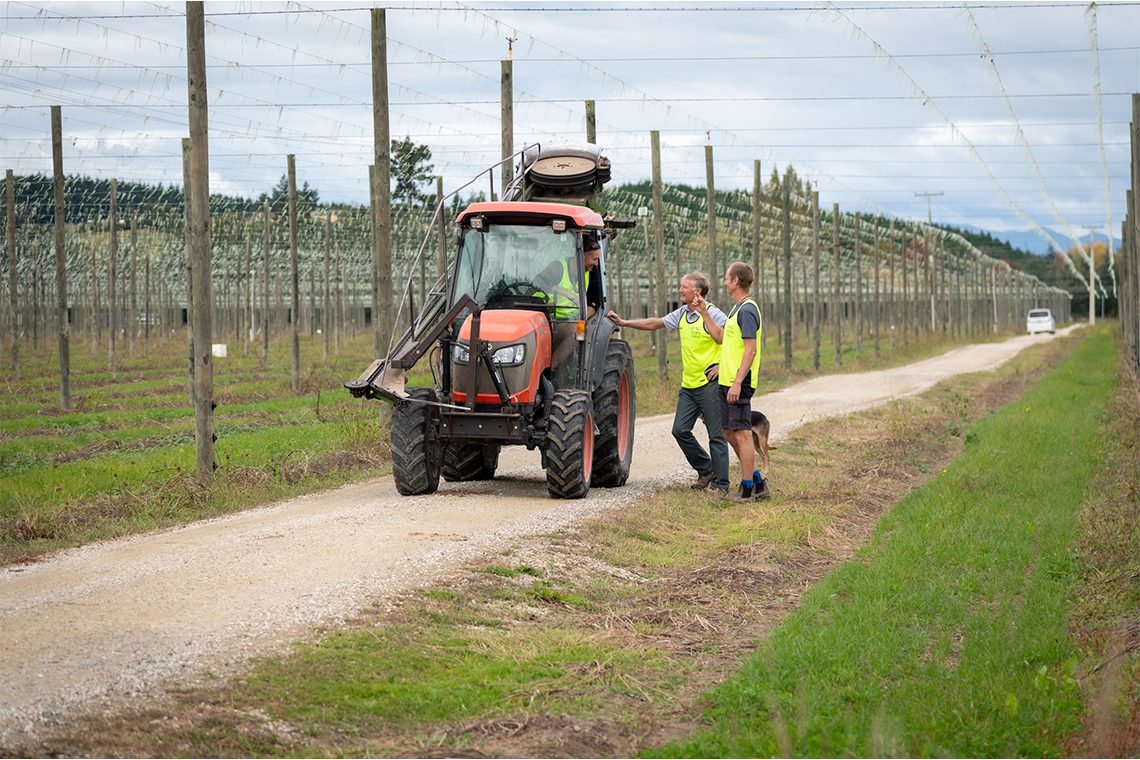
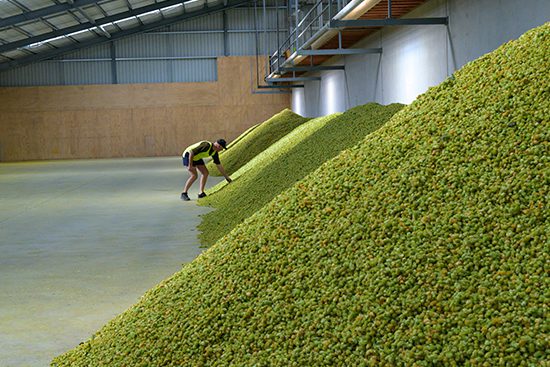
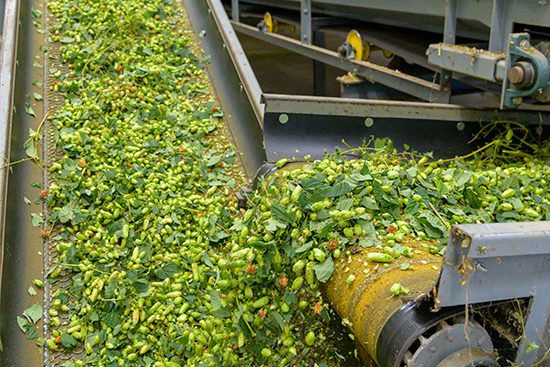
“ULTIMATELY THAT’S ALL YOU COULD WANT IN A TRACTOR, FAIRLY PRICED WITH A RELIABLE BUILD.”

“I was warned there was no future in hops and that I should look into other forms of farming. But having stuck with the crop and watching Mac Hops develop, I wake up every morning ready to give each day my all.” As the demand for Mac Hops product continues to flourish, so does the business.
Recently acquiring a 150-hectare property, a 12-minute drive from their current farm, Mac Hops has significantly increased their production levels and now has established a new and modern infrastructure for harvesting and drying the extra production. As they have grown, so has their need for extra equipment that can handle the workloads thrown their way. Which is why the team at Mac Hops turn to Kubota. Owen is a strong supporter of the six Kubota tractors doing the cultivation work on the new farm.
“I have been using Kubota tractors for about seven years now, as they are reliable pieces of machinery. I have four M8540 narrows and two M5101 narrows, which are lightweight and perfect for the conditions we have on our farms. “When purchasing the tractors we were looking for a lighter frame to navigate tough clay conditions. I have had very few issues with my Kubotas, which is a testament to their durability. They handle our needs on a big farm amazingly well.
“The running costs are low and service and parts are also very reasonably priced. “Ultimately that’s all you could want in a tractor, fairly priced with a reliable build. “All the tractors are fitted with customised cabs, which provide extra comfort to our staff, who at times work long hours.”
Watch Mac Hops at work with their fleet of 6 Kubota Tractors.